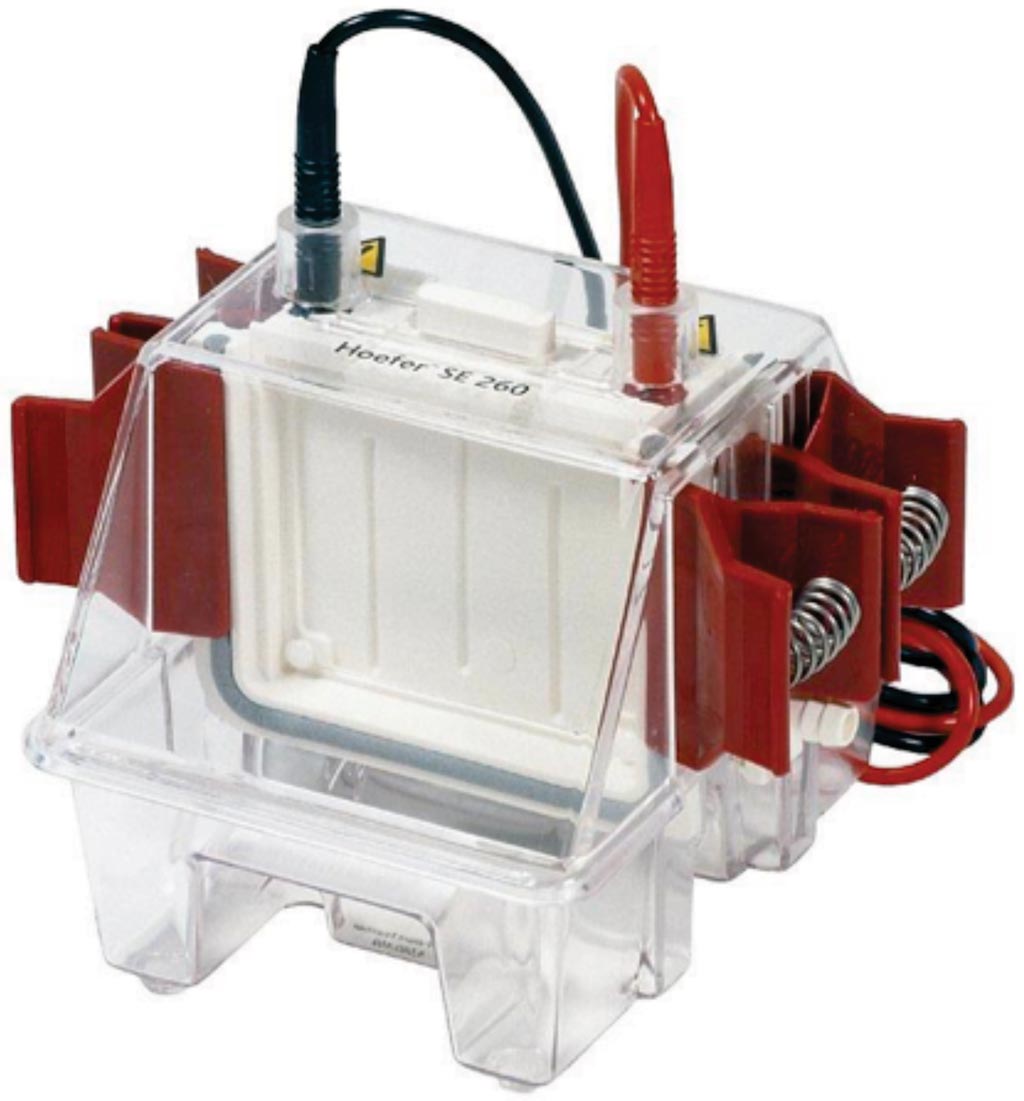Troponin Complexes Explored in Acute MI Patients
By LabMedica International staff writers
Posted on 22 Aug 2019
Acute myocardial infarction is the medical name for a heart attack. A heart attack is a life-threatening condition that occurs when blood flow to the heart muscle is abruptly cut off, causing tissue damage. This is usually the result of a blockage in one or more of the coronary arteries.Posted on 22 Aug 2019
The troponin complex is a component of the contractile apparatus of striated and cardiac muscles. The measurement of cardiac isoforms of troponin I (cTnI) and troponin T (cTnT) is widely used for the diagnosis of acute myocardial infarction (AMI). In the heart, these cardiac troponin complexes are composed of these specific cardiac isoforms and a cardiac/slow skeletal isoform of troponin C (TnC). On acute myocardial infarction (AMI), troponins are released from necrotic tissue into the bloodstream.

Image: The SE280 electrophoresis unit (Photo courtesy of Hoefer).
A team of scientists linked up with those at the commercial company HyTest Ltd (Turku, Finland) collected serial blood samples from 38 patients (148 samples in total) were collected between 2 and 33 hours following the onset of chest pain. Blood was withdrawn by means of venipuncture into 10-mL vacutainer blood-collection tubes coated with Li-heparin. Tubes were inverted several times and centrifuged for 20 minutes at 1500g. The resulting plasma was decanted and stored at −70 °C in 5-mL polypropylene tubes. Heparin plasma samples from 11 apparently healthy individuals, 25 to 40 years of age, were pooled and stored at −70 °C.
The team measured cTnI and cTnT concentrations in all Li-heparin plasma samples were measured by in-house immunofluorescence assays (FIA) utilizing TnI19C7-TnI560 and TnT329-TnT406 assays, respectively. All samples were analyzed by a 2-step FIA using Eu-labeled monoclonal antibodies (mAbs). They also conducted “mixed sandwich assays” in which capture and detection mAbs were specific to different components of troponin complexes. The gel filtration (GF) studies were performed using an AKTA pure chromatography system on a HiLoad Superdex 200 PG 16/60 column. Cardiac troponins and their fragments were analyzed using 15% to 22.5% gradient SDS-PAGE according to Laemmli under reducing conditions using a Hoefer SE280 electrophoresis unit.
Plasma samples from patients with AMI contained the following troponin complexes: (a) a cTnI-cTnT-TnC complex (ITC) composed of full-size cTnT of 37 kDa or its 29-kDa fragment and full-size cTnI of 29 kDa or its 27-kDa fragments; (b) ITC with lower molecular weight (LMW-ITC) in which cTnT was truncated to the 14-kDa C-terminal fragments; and (c) a binary cTnI-cTnC complex composed of truncated cTnI of approximately 14 kDa.
During the progression of the disease, the amount of ITC in AMI samples decreased, whereas the amounts of LMW-ITC and short 16- to 20-kDa cTnT central fragments increased. Almost all full-size cTnT and a 29-kDa cTnT fragment in AMI plasma samples were the components of ITC. No free full-size cTnT was found in AMI plasma samples. Only 16- to 27-kDa central fragments of cTnT were present in a free form in patient blood.
The authors concluded that a ternary troponin complex exists in two forms in the blood of patients with AMI: full-size ITC and LMW-ITC. The binary cTnI-cTnC complex and free cTnT fragments are also present in patient blood. The study was published on the July 2019 issue of the journal Clinical Chemistry.
Related Links:
HyTest













